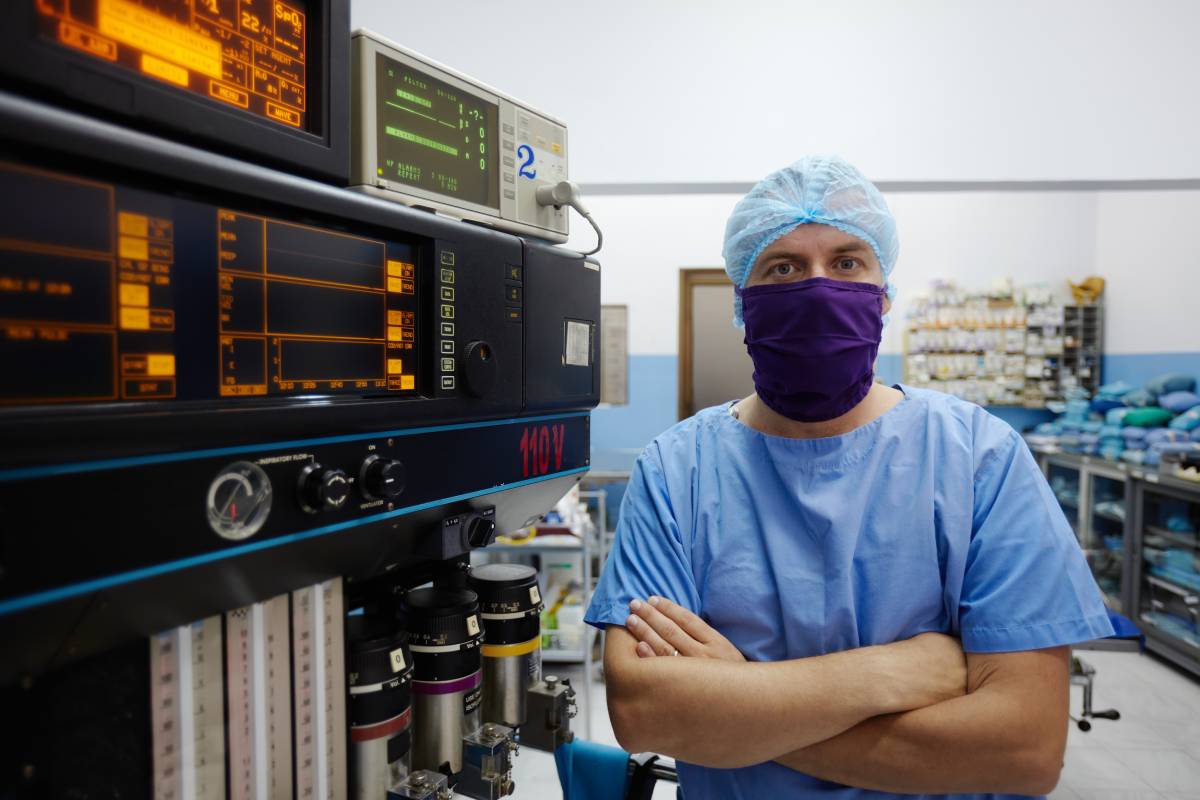In medical training, a question that is central to the practice of medicine is if volume is correlated to better training and subsequently, better patient outcomes. Medical trainees applying to residency must consider the volume of a training program. Physicians must consider the caseload of a potential employer. All providers want to provide the best possible care to their patients, but how much volume is required to achieve that level? Some studies suggest that the physician or hospital experience is associated with patient outcomes in some situations, and similarly for anesthesiologist experience specifically.
In a 2002 meta-analysis of studies investigating the relationship between hospital or physician volume and clinical outcomes, 135 studies were identified. 71% of the studies on hospital volume and 69% of the studies on physician volume reported statistically significant associations between higher volume and better outcomes, particularly for AIDS treatment, pancreatic cancer surgery, esophageal cancer surgery, abdominal aortic aneurysm repair, and pediatric cardiac problems.1 Of the 21 studies that examined the independent effects of both hospital and physician volume, 4 found significant effects for physician volume only, while 12 found significant effects for both variables. However, studies included in the review differed in methodology.
There have been a few studies looking at anesthesiologist experience and patient outcomes specifically. One retrospective study looked at nearly 9000 patients having surgery. They sorted anesthesiologists and CRNAs as experienced or inexperienced, which depended on the total hospital volume of each specific type of surgery.2 7.6% of patients that received anesthesia from experienced pairs had complications compared to 12% with inexperienced pairs. Specifically, patients who underwent surgery with experienced pairs had fewer bleeding complications, infections, shorter hospitalization and reduced in-hospital mortality. Another study examined 8096 patients who underwent esophagectomy, pancreatectomy, or hepatectomy for cancer.3 These surgeries tend to be more complex and complicated than a typical abdominal surgery, and anesthesiologists at the study hospital managed 3 surgeries per year on average. Anesthesiologists were sorted into high volume (greater than 6 of these specific procedures per year) or low volume (less than 6 procedures a year). High volume anesthesiologists had a 90-day morbidity rate of 36.3%, and low volume anesthesiologists had a rate of 45.7%. In addition, high volume anesthesiologists had lower odds of unplanned ICU admission. No effect was found for readmission or mortality.
Looking at these studies in conjunction suggests there may be a relationship between increased volume/experience and better patient outcomes for an anesthesiologist. However, due to the variation of the studies, it may be hard to turn the literature into actionable steps for trainees and physicians. Some limitations include the studies analyzing different independent variables, for example, looking at anesthesia provider pairs vs a single anesthesiologist, and their varying cutoffs for how much volume counts as experienced. Additionally, the studies looked at different types of surgeries. The effect may be clearer looking at the same set of procedures in different hospitals. More research is needed to replicate these results.
References
- Halm EA, Lee C, Chassin MR. Is volume related to outcome in health care? A systematic review and methodologic critique of the literature. Ann Intern Med. 2002 Sep 17;137(6):511-20. doi: 10.7326/0003-4819-137-6-200209170-00012. PMID: 12230353.
- Saager L, Ruetzler K, Turan A, Maheshwari K, Cohen B, You J, Mascha EJ, Qiu Y, Ince I, Sessler DI. Do It Often, Do It Better: Association Between Pairs of Experienced Subspecialty Anesthesia Caregivers and Postoperative Outcomes. A Retrospective Observational Study. Anesth Analg. 2021 Mar 1;132(3):866-877. doi: 10.1213/ANE.0000000000005318. PMID: 33433116.
- Hallet J, Jerath A, Turgeon AF, McIsaac DI, Eskander A, Zuckerman J, Zuk V, Sohail S, Darling GE, Dharma C, Coburn NG, Sutradhar R. Association Between Anesthesiologist Volume and Short-term Outcomes in Complex Gastrointestinal Cancer Surgery. JAMA Surg. 2021 May 1;156(5):479-487. doi: 10.1001/jamasurg.2021.0135. PMID: 33729435; PMCID: PMC7970385.


